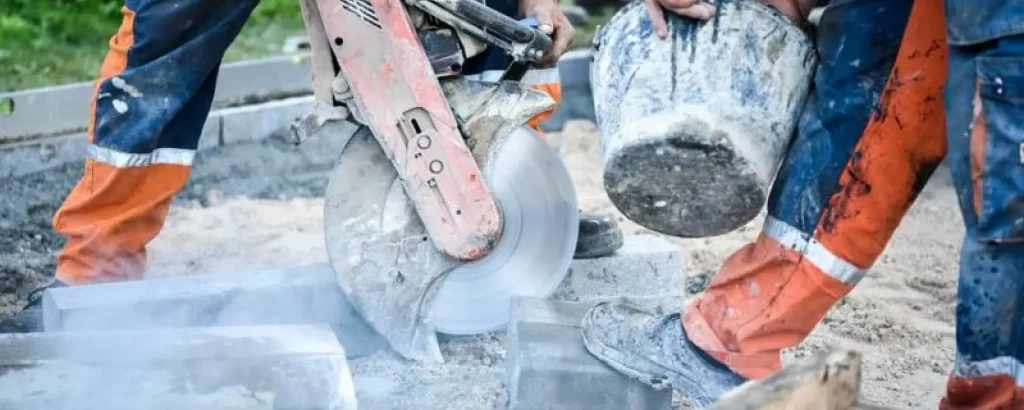Emergencies strike without warning, often leaving those present feeling powerless to help. However, with the right training and preparation, you can transform uncertainty into decisive action. Every second in an emergency counts, and the ability to act swiftly can often mean the difference between a tragic outcome and a saved life.
In an era marked by unpredictable situations—from medical emergencies at home to incidents in public spaces—the importance of life-saving skills cannot be overstated. Fortier Loss Control Consultants is dedicated to equipping individuals with the tools and knowledge to respond confidently and effectively. Through their comprehensive First Aid, CPR, and AED training programs, Fortier Safety empowers people from all walks of life to become critical first responders in their communities. With the right skills, anyone can be the person who makes a difference when it matters most.
Overview of First Aid, CPR, and AED
First Aid, CPR, and AED training are essential components of a well-rounded emergency response skillset. Each serves a unique purpose, but together, they form a cohesive system that maximizes the chances of survival during medical emergencies.
First Aid: The Foundation of Emergency Care
First Aid is often the first line of defense in a medical crisis. It involves providing immediate care to an injured or ill individual until professional medical assistance arrives. This care can range from treating minor injuries such as cuts and sprains to stabilizing more severe conditions like fractures or burns. In situations involving choking, poisoning, or allergic reactions, First Aid training provides the practical skills needed to act quickly and appropriately.
Fortier Loss Control’s First Aid training doesn’t just teach theoretical knowledge; it emphasizes hands-on application. Participants gain experience using essential tools such as bandages, splints, and antiseptics, while learning to remain calm and methodical in high-pressure situations.
CPR: The Lifesaving Skill That Sustains Life
Cardiac emergencies are among the most critical situations where every moment matters. Without immediate intervention, a sudden cardiac arrest can quickly become fatal. CPR (Cardiopulmonary Resuscitation) is a life-sustaining technique that keeps blood flowing to vital organs until advanced medical care can take over.
Fortier Safety’s CPR training provides a step-by-step guide to performing chest compressions and rescue breaths effectively. Participants learn:
- The correct hand placement and compression depth.
- How to establish the proper rhythm for compressions.
By the end of the course, learners gain the confidence to act decisively, knowing that their actions could potentially save a life.
AED: A Critical Link in the Chain of Survival
While CPR maintains circulation and oxygenation, an AED (Automated External Defibrillator) often restores life. These portable devices analyze heart rhythms and deliver an electrical shock to re-establish a normal heartbeat in cases of sudden cardiac arrest. Time is critical when using an AED; the sooner it’s applied, the greater the likelihood of survival.
Fortier Safety’s AED training demystifies the use of these devices, ensuring that participants:
- Understand how an AED works and when to use it.
- Gain practical experience operating AED models commonly found in public spaces.
- Build the confidence to integrate AED use with CPR for a seamless response.
The training emphasizes real-world scenarios, preparing participants to act decisively in crowded environments, workplaces, or even at home.
Why Certification Matters
In critical moments, hesitation can be as dangerous as the emergency itself. Certification in life-saving skills such as First Aid, CPR, and AED not only imparts knowledge but also instills the confidence and responsibility needed to act decisively in emergencies.
Legal and Ethical Benefits of Certification
Certified individuals are often better protected under Good Samaritan laws, which shield those who provide assistance in good faith from legal repercussions. This legal protection offers peace of mind, enabling certified responders to focus on helping rather than worrying about liability.
Ethically, certification underscores an individual’s commitment to being a responsible member of their community. In life-threatening situations, the ability to provide competent care can mean everything. A certified person is more likely to act promptly and appropriately, significantly improving the outcomes for those in need.
Building Safer Communities Through Certification
Communities with a higher number of certified individuals are inherently safer. Why? Because certified responders ensure immediate care is available even before professional medical help arrives. Research shows that rapid intervention in emergencies can reduce fatalities by as much as 50%, particularly in cases of cardiac arrest or severe trauma. Fortier Loss Control’s certification programs contribute to this ripple effect of preparedness, equipping participants with skills that benefit not just themselves but everyone around them.
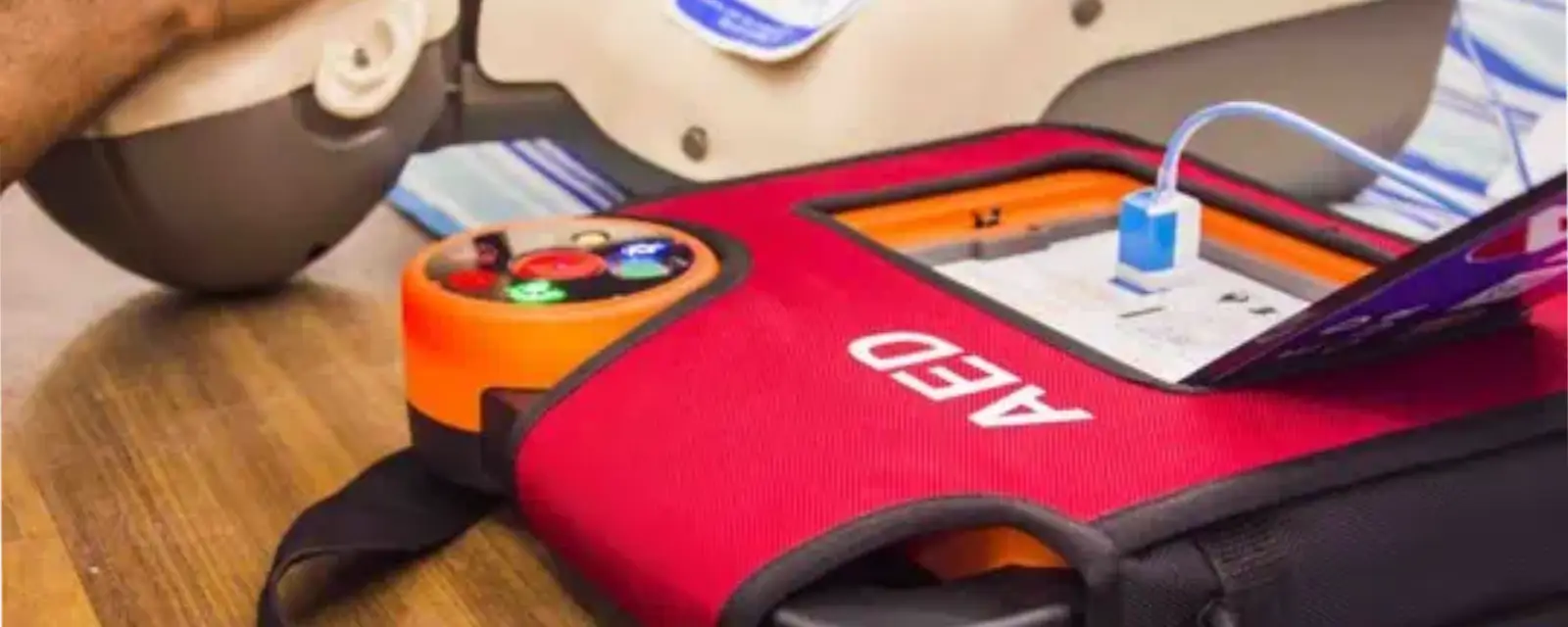
Fortier Loss Control Consultants: A Trusted Name in Life-Saving Training
With a deep-rooted commitment to quality and impact, Fortier has established itself as a premier provider of life-saving certifications. Our programs are built on a foundation of expertise, innovation, and accessibility, ensuring that learners from all backgrounds can acquire these essential skills.
Why Fortier Loss Control Consultants Stands Out
- Proven Expertise: With years of experience, Fortier has developed a curriculum that reflects real-world needs, staying updated with the latest guidelines and advancements in emergency response.
- Engaging Instruction: Their team of certified instructors brings not only technical proficiency but also a passion for teaching, making complex concepts easy to grasp.
- Commitment to Excellence: Fortier maintains high standards, ensuring that every participant leaves their program prepared to handle emergencies with confidence.
Whether you are an individual looking to protect your family or a business seeking to ensure workplace safety, Fortier Safety provides the tools and training you need to succeed.
Components of Fortier Loss Control’s Training Program
What sets Fortier’s training programs apart is our holistic and hands-on approach. We recognize that learning life-saving skills requires more than just reading a manual; it requires real-world practice, adaptability, and reinforcement. Our training modules are designed to engage participants at every level, offering:
1. Hands-On Training
Fortier Loss Control Consultants prioritizes realistic simulations that prepare participants for the unpredictability of emergencies. Learners practice on high-quality dummies and use state-of-the-art AED models to replicate real-life scenarios. This approach builds muscle memory and confidence, ensuring participants can perform under pressure when it matters most.
Example scenarios include:
- Performing CPR on adults.
- Treating severe injuries, such as fractures or lacerations.
- Using an AED to respond to sudden cardiac arrest.
2. Tailored Curriculum for Diverse Audiences
Every audience has unique needs, and Fortier Loss Control tailors our programs to meet them. Our customized training options cater to a variety of groups, including:
- Corporate Teams: Ensuring workplace safety and compliance.
- Schools: Training educators and staff to protect students.
- Individuals and Families: Empowering everyday citizens to respond to emergencies at home or in their community.
This tailored approach ensures that participants receive the most relevant and applicable training for their specific environments.
Mastering First Aid: Techniques and Applications
In emergencies, time is of the essence, and First Aid is often the critical first step in mitigating harm and stabilizing a victim until professional medical assistance arrives. From minor injuries like cuts and abrasions to more severe conditions such as fractures, burns, and life-threatening bleeding, the ability to administer First Aid can prevent a bad situation from becoming worse.
Fortier Safety’s First Aid training is built on the principle of readiness through mastery. Participants are not only taught the basics but are trained to:
- Assess the Situation: Quickly determine the severity of injuries to prioritize care.
- Stabilize Victims: Employ advanced techniques to control bleeding, support fractures, or manage shock.
- Use Tools Effectively: Gain proficiency in handling First Aid essentials, including bandages, splints, antiseptics, and emergency blankets.
The program emphasizes quick decision-making and clear prioritization—skills that can make all the difference in high-pressure scenarios. Through interactive and hands-on training, participants learn to remain calm and methodical, traits that are vital when every second counts.
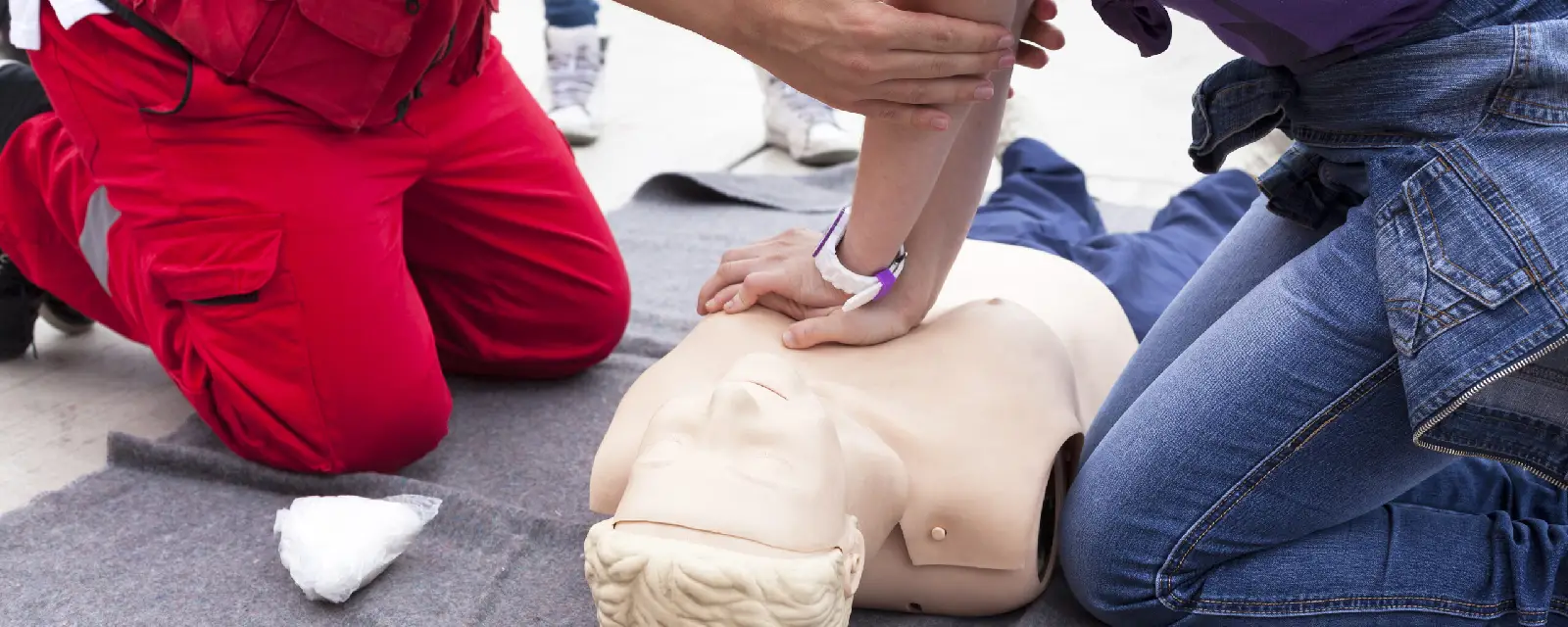
CPR: The Lifeline Skill
When a person’s heart stops beating, immediate action is crucial to save their life. Cardiopulmonary Resuscitation (CPR) serves as a lifeline, maintaining blood circulation and oxygen flow to vital organs until emergency medical services arrive. Without CPR, irreversible brain damage can occur within minutes.
Fortier Safety’s CPR training provides participants with the tools and confidence to respond effectively in such critical situations. The program covers:
- Proper Technique: Ensure correct hand placement, compression depth, and timing for maximum effectiveness.
- Understanding Rhythms: Master the essential 30:2 ratio of compressions to breaths.
- Age-Specific Approaches: Learn tailored CPR techniques for adults, children, and infants, recognizing that each requires unique care.
Training sessions are designed to reinforce muscle memory, making CPR a natural and confident response rather than a panicked reaction. By practicing repeatedly under expert guidance, participants develop the ability to stay composed and deliver CPR effectively, even under intense stress.
Beyond the physical techniques, Fortier Safety emphasizes the importance of assessing the situation before performing CPR, ensuring that every action taken is safe, timely, and appropriate.
Demystifying AED: A Key to Survival
While CPR is essential in keeping the blood flowing, an AED (Automated External Defibrillator) is often the key to restarting a heart that has stopped. AEDs are sophisticated yet simple devices that deliver controlled electric shocks to restore normal heart rhythm in cases of sudden cardiac arrest. However, despite their growing availability in public spaces, many people remain hesitant to use them due to fear or lack of knowledge.
Fortier Safety’s AED training program addresses this gap, providing participants with:
- A Clear Understanding of How AEDs Work: Participants learn the science behind defibrillation and how electrical currents help reset heart rhythms.
- Hands-On Practice: Engage with real-world AED models to ensure familiarity with their operation, including attaching pads, analyzing rhythms, and delivering shocks.
- Stress Management Techniques: Emergency situations can be overwhelming, and Fortier Safety emphasizes the importance of maintaining composure while using an AED, ensuring a smooth and effective response.
A critical aspect of the training is teaching learners how to recognize when AED intervention is necessary and when it should be combined with CPR. Fortier Safety also highlights the importance of understanding verbal and visual prompts provided by AED devices, ensuring users are confident and efficient during emergencies.
Benefits of Fortier Loss Control’s Comprehensive Certification
Our life-saving certification programs do more than just teach essential skills—they transform lives and build confidence. Participants emerge not only with a deep understanding of First Aid, CPR, and AED techniques but also with the assurance that they can act effectively in high-stakes situations. The benefits of this comprehensive training extend far beyond the classroom, offering both personal growth and professional opportunities.
Increased Confidence in Emergency Response
One of the most profound outcomes reported by participants is the boost in confidence. Emergencies are often chaotic and intimidating, but Fortier’s training equips individuals to handle them with poise and precision. Through hands-on practice and real-world scenarios, learners become comfortable assessing situations, prioritizing actions, and applying the correct techniques. This confidence doesn’t just make them more effective responders—it also reduces hesitation, which can be critical when seconds count.
Preparedness to Protect Loved Ones and Strangers
The true value of life-saving training often becomes clear in personal settings. Emergencies don’t always happen in hospitals or schools; they can strike at home, at a family gathering, or in public spaces. Graduates of Fortier’s program report a profound sense of satisfaction in knowing they are prepared to protect those closest to them. This readiness extends to strangers as well—many participants have gone on to save lives in unexpected situations, from workplace incidents to public emergencies.
A Lifelong Skillset
Life-saving certification is not just a one-time achievement but a lifelong asset. With periodic refreshers and updates provided by Fortier Loss Control, participants remain at the cutting edge of techniques and guidelines. This continuous learning ensures that they are always ready to act when needed.
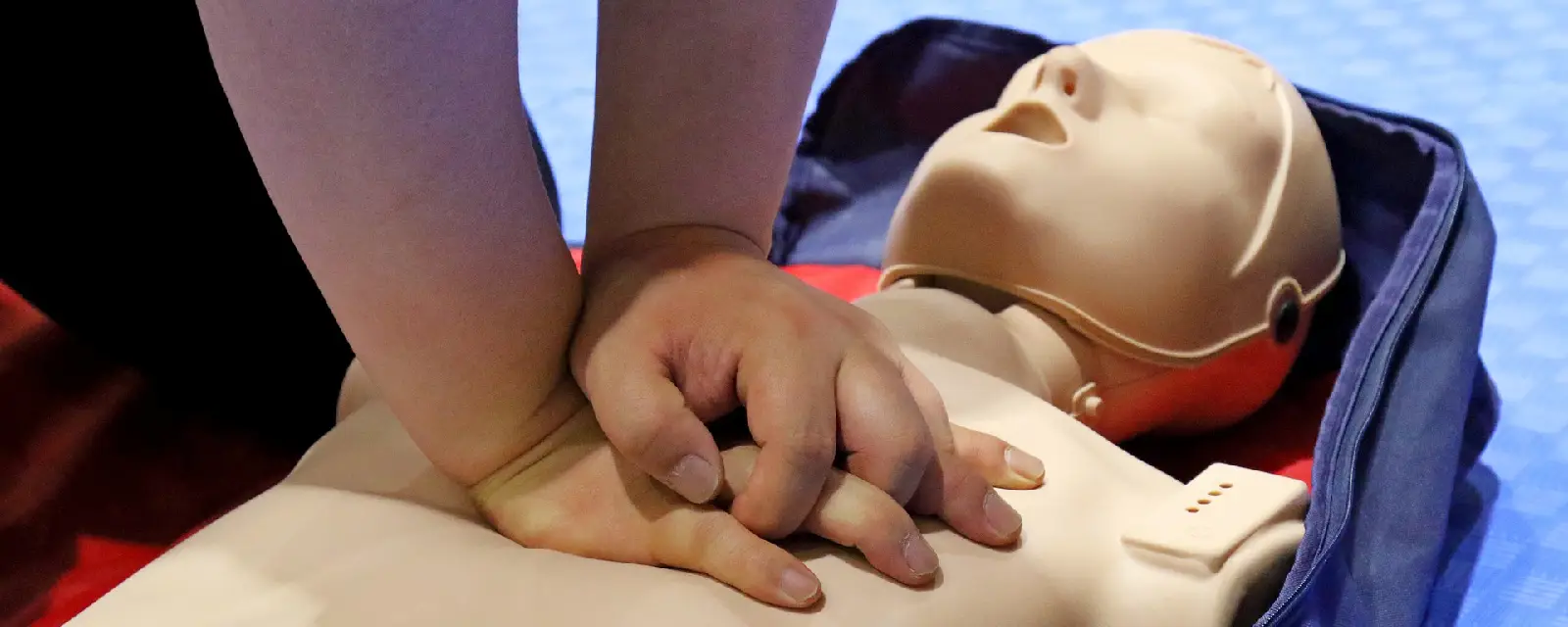
Frequently Asked Questions
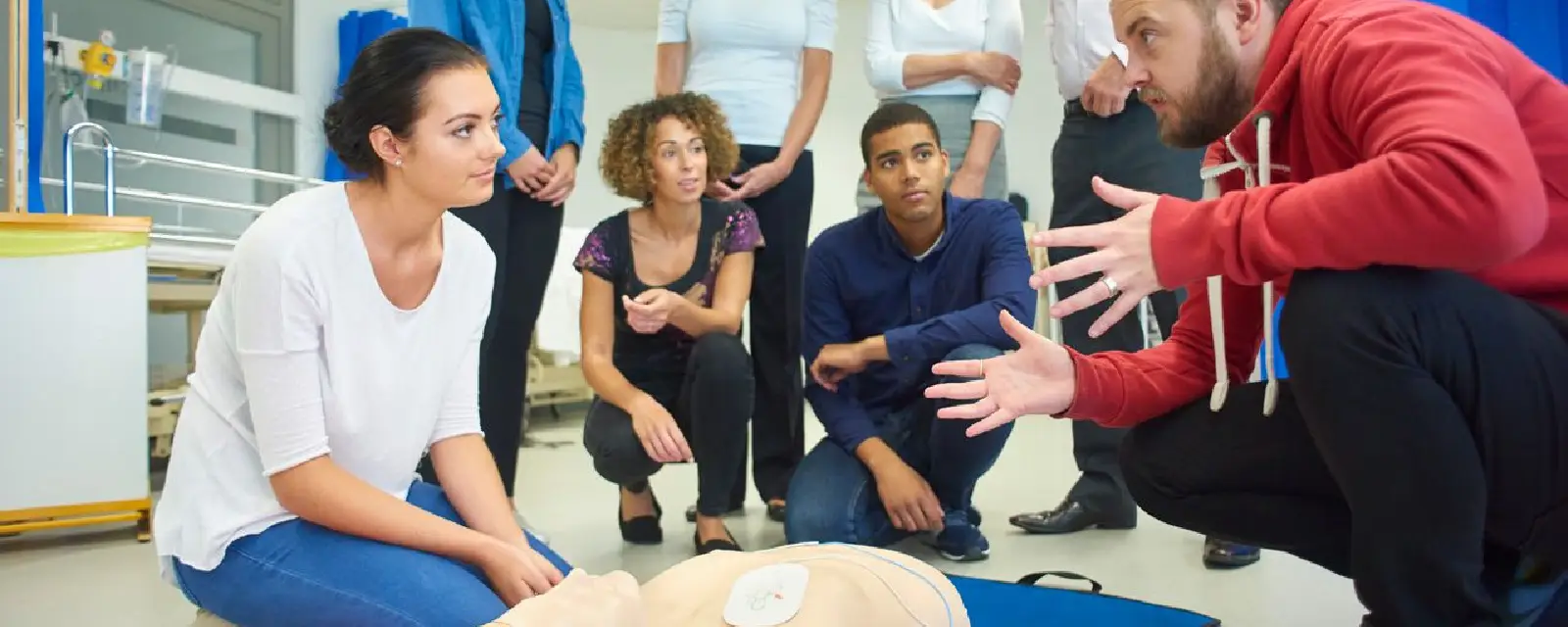
Conclusion: Investing in a Life-Saving Skillset
In emergencies, the ability to act swiftly and decisively can mean the difference between life and death. While no one can predict when or where a crisis will occur, being prepared is a choice that every individual can make. The importance of mastering First Aid, CPR, and AED cannot be overstated—these are skills that have the power to change outcomes and save lives.
Choosing Fortier Safety means aligning yourself with an organization dedicated to excellence and accessibility. Their training programs are designed to accommodate diverse needs, ensuring that individuals from all backgrounds can master these essential skills. With Fortier Safety, you’re not just taking a course—you’re making a commitment to your personal growth, your loved ones, and your community.
Life-saving skills are among the most valuable investments you can make. They empower you to face emergencies with confidence, turn fear into action, and potentially save lives. Fortier Safety’s comprehensive certification program offers the perfect opportunity to gain these critical skills in a supportive and professional environment.
Don’t wait for an emergency to remind you of the importance of being prepared. Take the step today—enroll in Fortier Safety’s training program and become part of a movement dedicated to saving lives. Together, we can create a safer world, one trained responder at a time.


